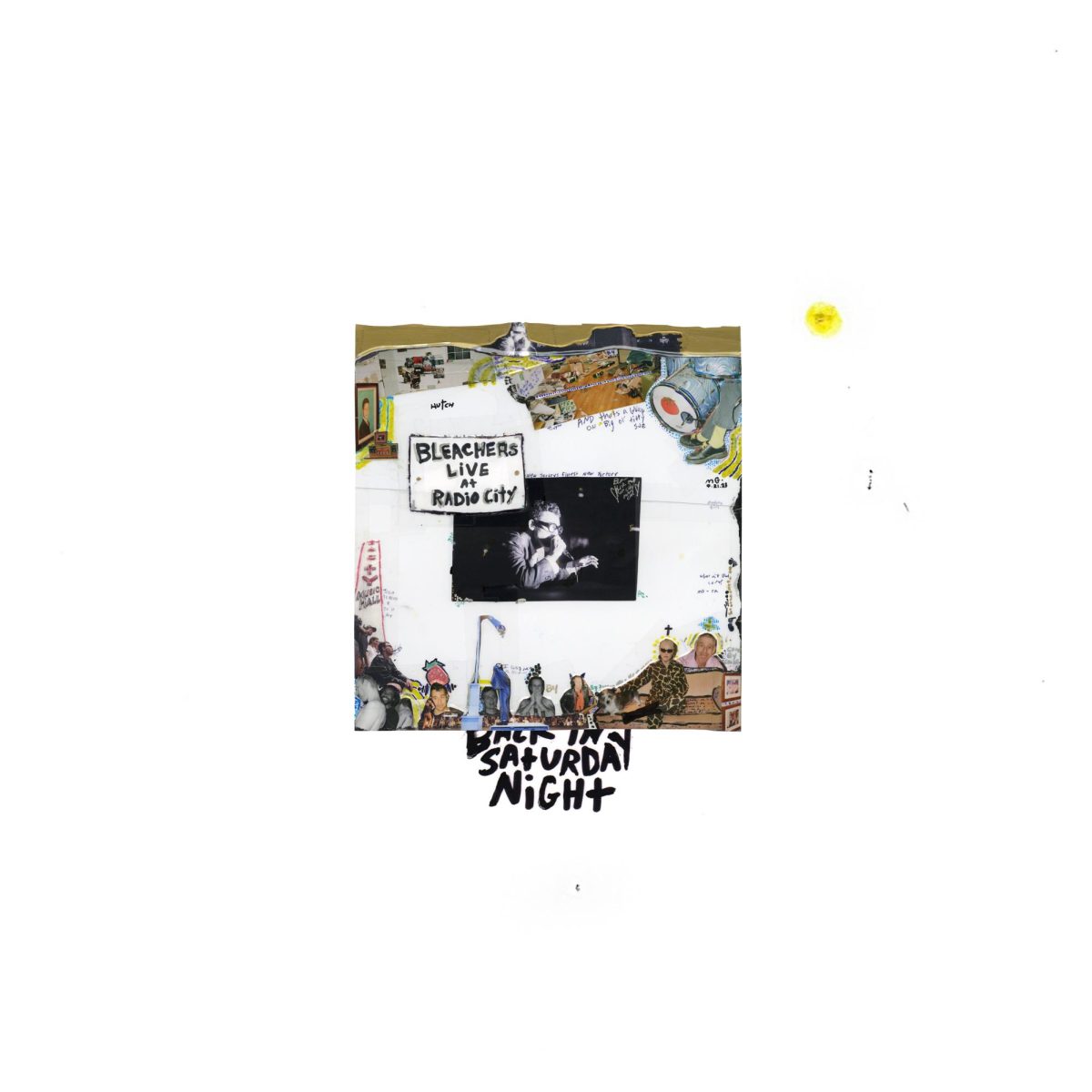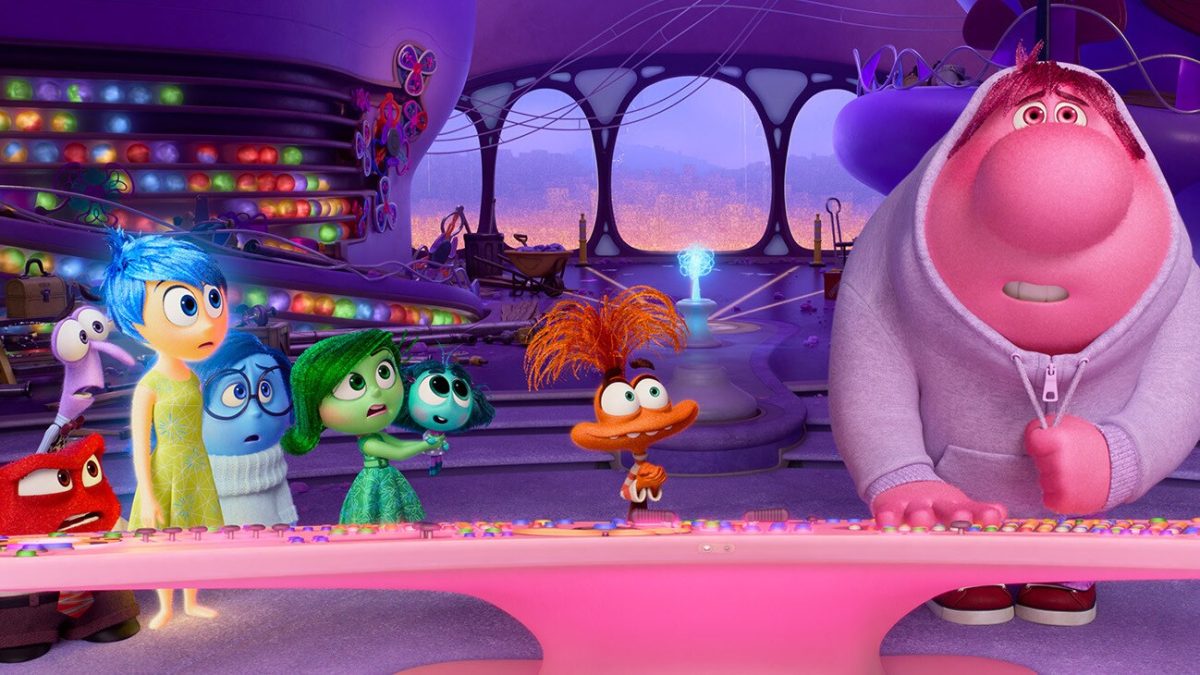A friend and I were talking about how we were both missing the releases of our favorite music artists because we were working at an event on Aug. 25. While I was so focused on singer-songwriter Conan Gray’s single “Winner” coming out, my friend mentioned he was waiting on Bleachers’ album “Live At Radio City Music Hall.”
Gaping in horror, I was ashamed not knowing that another one of my beloved artists was putting out some music — a whole album! However, I felt a little less mortified when I found out it wasn’t entirely composed of ‘new’ music; they’re recordings of the songs the band performed live during its 2022 tour for “Take the Sadness Out of Saturday Night,” an album Bleachers released in 2021.
If I heard this news about seven years ago, I probably couldn’t have cared less because I didn’t know the band existed. Bleachers serves as the stage name for producer and songwriter Jack Antonoff, and I’d heard his name a good amount because of his influence and involvement in records by singer-songwriter Taylor Swift. I only found Antonoff’s band after a song of his came up on my shuffle, and I searched up the band after the person on his album cover looked familiar.
This type of news wouldn’t have caught my attention for another reason: I never understood the hype behind live versions of tracks already released as studio recordings. I used to despise being able to pick out off-key singing; I wasn’t trying to criticize the singer at all, but playing instruments and singing in groups for years prior made it easier for me to hear when sounds clash to my ears.
My mind did a complete 180° turn in more recent years. I started learning about the concept of concerts after 2018, and that’s when I began looking up videos of live performances and fell in love with the idea of being able to look at the artist in front of me and sing along to tracks I’ve looped endlessly on my own.
The fourth track of the Bleachers’ latest release, “I’m Ready To Move On / Wild Heart Reprise,” featured a little commentary from Antonoff about writing and performing songs during the COVID-19 pandemic. He said, “I knew we’d play again, but I genuinely didn’t know if it would be in any sort of capacity that would be what we need to do to feel alive. And that’s this — that’s to be together and fuckin’ go for it!”
That describes how my views on listening to live performances have shifted — I now look at it as a way to be surrounded by people who are willing to rip their hearts open to each other without having to describe in detail why they might want or need to hear the music. There’s something quite magical about compathy: the sharing of feelings, whether they’re positive, negative, or neutral.
As hypocritical as this might sound, I have never gone to a live show thus far, but I always encourage others to do so. I also think that Bleachers in particular performs a fantastic rendering of its music with how the band is structured.
There are several members who switch their musical roles among the various songs, depending on the production of the track. Oftentimes, there’s a saxophone featured in many songs, which to me is something that distinguishes the band from others. A lot of its sounds are electronic, adding to the countless possibilities of how the final track sounds both in and out of the studio.
One of my favorite Bleachers’ tunes, “91,” has a distinct sound for the typically rock- or pop-sounding band. It features a cello and other string instruments, and the live recording on the album did a wonderful job of echoing the stunning strings from the studio version.
A highlight in the live adaptation, however, is one of the lines that listeners simply know to scream out loud in the concert hall. I’m still not entirely sure what all the lyrics of the song mean, but Antonoff sings, “Now you can dance with anyone, tattoo yourself a fucking sleeve,” with the audience in the live recording screaming wildly at the second part. This is just one example of countless times when there’s a mutual understanding in the fanbase of when certain sections of songs are metaphorically loud, thus making them physically loud when everyone is together in a concert setting.
“Do you hear that low sound that feels like it’s hugging you?” Antonoff, referring to a droning instrumental voice that stays on throughout the whole show, asks the crowd during one of the interludes on the album. “If you take it away, you’ve got so much anxiety flying through the air… You put it back in, and you’re fucking glued together.”
It can be so validating to hear something, usually indescribable through words, to actually be expressed in words, but musicians like Bleachers have those astounding skills and put them into practice during their live shows.
If you’re feeling a little sad on a Saturday night, I think Bleachers has at least one solution for you. I don’t think listening to their music always takes away that sorrow, but it at least puts you in a place where you know someone else is in the same sphere as you; that’s a type of comfort incomparable to any other sentiment.































